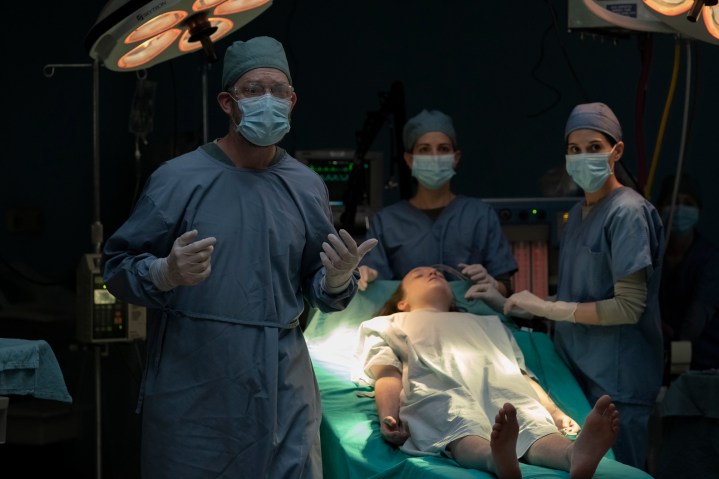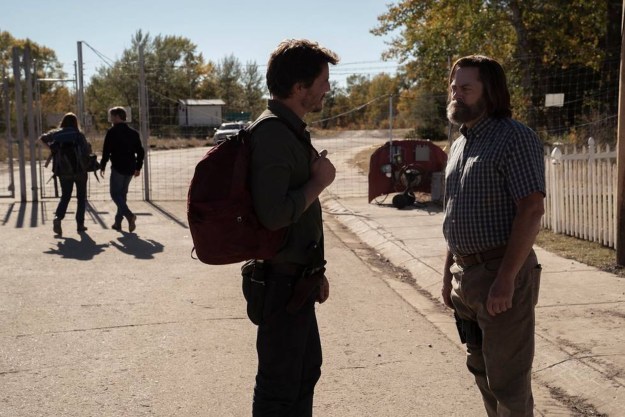HBO viewers were rocked Sunday night by the finale of The Last of Us, which brought the iconic ending of Naughty Dog’s critically acclaimed game to life in live-action. It was an extremely faithful adaptation, with no huge deviations from the source material. However, a key change was made that will help the show more gracefully transition into its adaptation of The Last of Us Part II.
Note: Spoilers for The Last of Us TV show and The Last of Us Part II video game to follow.
At the climax of The Last of Us Season 1’s final episode, we see Joel annihilate most of the Fireflies and doctors at the Salt Lake City hospital as they prepare to operate on Ellie to get a cure, which would have killed her in the process. It’s a chilling sequence that hits the same dubious, morally horrifying notes as it did in the game, and little is changed.
We see Joel kill the surgeon about to operate on Ellie after he picks up a scalpel and says he won’t let Joel take her. Joel shoots him in cold blood, but does not kill the nurses assisting him. As he walks out of the room with Ellie, a shot lingers on the face of the now-deceased surgeon, punctuating Joel’s massacre.

That may sound like a small cinematic altercation, but that lingering shot is very meaningful to those of us that played The Last of Us Part II. In the original game, we don’t think much about Joel’s victim; he’s just some nameless doctor. In Part II, however, we meet that doctor’s daughter, Abby, who’s on a quest for revenge. What’s a thoughtless action for Joel becomes deeply personal for someone he’s never met.
By adding in that extra shot, the finale more confidently sets that up. Even if casual viewers don’t know it yet, the groundwork is being laid for something that will be very important in the next season and makes it clear that the show knows where it’s going.
The finale further teases what’s to come with a smart bit of casting. Eagle-eyed fans may notice that one of the nurses during the scene is played by Laura Bailey, who portrays Abby in The Last of Us Part II. It’s likely just the show paying tribute to the game’s cast (as it did in episode 8 with Troy Baker, who voiced Joel in the video games), but it’s also another way to tease what’s to come in the next season. Abby is coming for Joel. Prepare your golf balls.
Of course, when Naughty Dog released The Last of Us in 2013, it didn’t yet know that this doctor would play such a pivotal part in the sequel’s story, so not as much focus was put on him in the game. The developers retroactively tried to correct this with a retelling of the sequence from Abby’s perspective in The Last of Us Part II and updated models in the game’s remake.
Showrunners Craig Maizin and Neil Druckmann have the benefit of knowing this moment’s importance from the start and not being locked to Joel’s third-person perspective. They can now take the time to linger with a shot like this, emphasizing what Joel has done and laying the groundwork for what comes next. It’s a short and subtle shot that slightly deviates from the original game, but it’s also something that could only be done in this TV show and will certainly be hugely important for the show as we head into season 2.
The Last of Us is available to stream on HBO Max.
Editors' Recommendations
- The Last of Us Part 2 almost had a very different ending, according to Remastered commentary
- The Last of Us Part 2 Remastered: No Return tips and tricks for beginners
- What’s new in January 2024: 7 games that should be on your radar
- Now that The Last of Us is over, you should watch these TV shows and movies
- HBO’s The Last of Us show spotlights the series’ best game: Left Behind




